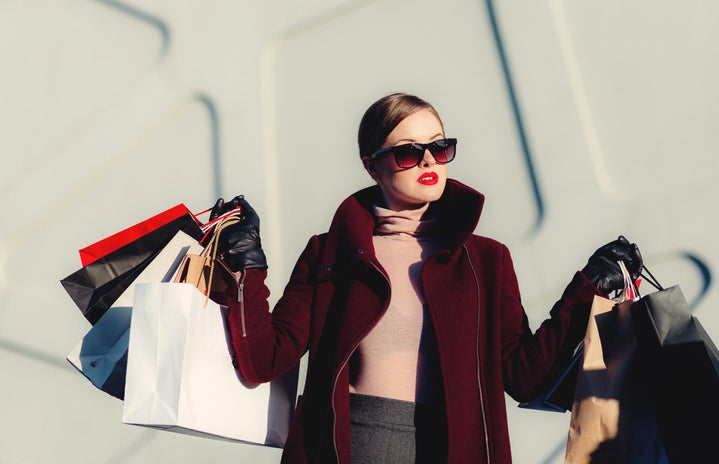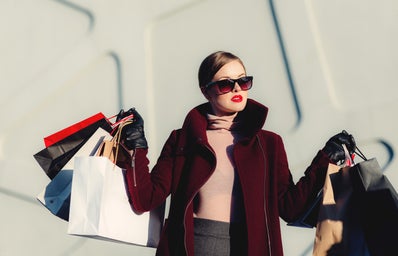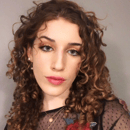While there’s nothing wrong with wearing lipstick, shaving, or getting your hair done, it’s important to realize that women live in a world that constantly reminds us what we should be doing to look better, often diminishing autonomy over our own bodies. As a result, navigating the beauty industry is emotionally difficult since every advertisement is pointed towards you, telling you what you’re doing wrong. Even though this seems like a small issue, the patriarchy manifests itself in these subtle cues. The patriarchy and beauty industry position ‘performing’ femininity incorrectly as something to be remedied, often targeting those who do not meet the rigid standards. Books and articles have been written on the connections between patriarchal control and the role of the beauty industry in championing specific ‘types’ of beauty, such as in Naomi Wolf’s The Beauty Myth. As a feminist, it’s difficult to navigate beauty since I constantly find myself acutely aware of the coercions and manipulations of my own body and yet pulled to those products at the same time.
Even though beauty choices are framed as a ‘choice,’ it’s not a choice if other people critique your choices when you don’t perform correctly or according to their rules. For instance, shaving is often framed as a personal choice, especially in an era of increasing social awareness of the systems of the patriarchy. However, when women deviate from shaving their armpits, legs, or any place where they have hair, advertisements loyally remind you at every turn that the beautiful model and the ideal woman don’t have hair. To support this myth, society has bought into the idea that women should not have any hair. This supports and advertises malicious ideals that in day-to-day life translate to staring and rudely commenting about women’s visible body hair. All of this contributes to the incorrect assumption that women are less beautiful with hair. As I’ve personally struggled with this issue, having darker leg hair and eyebrows, I’ve learned to accept that not everyone will agree with my choices: it’s my body. Although that seems like a simplistic statement, accepting that not everyone will like or appreciate you is a necessary step in loving your own body more fully. Now, I try to limit my social media interaction, which tends to help my self-criticism when I don’t conform to these online beauty criticisms.
The realm of the beauty industry makes it difficult to separate your desires from patriarchal pressures. I’ve struggled with this because I enjoy items like jewelry, makeup, and clothing as a way of expressing my own style. Yet, every time I put some earrings on or do my makeup, I wonder if I’m truly doing it for myself or for others. Although allowing women to wear what they want is an essential component to feminism, it’s also important to recognize that women do feel the pressure to conform. To deal with my own qualms about this issue, I often take a middle-ground: I like make-up because it allows me to express myself, but I also sometimes feel like I need to wear it to be respected or seen as attractive. Taking a wider perspective on this issue lessened my stress and made me more aware that beauty devices aren’t inherently evil. It’s when those devices begin to say something about your inner value that they start to become malicious. For example, I’ve become more comfortable with not wearing makeup and wearing more comfortable (and less flattering) clothes when I’m studying or going to school. This has helped me transition my views on beauty from something to avoid, to something that can be empowering if it’s used when I want to and not when I feel pressured.
That being said, the emotional toll of constantly feeling like you’re criticized for your appearance is significant and frustrating. We’re used to seeing countless products we should ‘start using in your twenties to stop aging’ , and ‘fix those normal parts of skin that are a little discoloured.’ The hyperfixation on small (and truly insignificant) issues of beauty not only eats up our time but our wallets too. In turn, this constant obsession with fitting women into identical shapes of “attractiveness” reflects onto women a personal and internal evaluation, making it difficult to resist buying and spending time on these exercises and products. To deal with the frustration I experience due to this bombarding of messages, I lessened my interactions with social media, specifically Instagram and Facebook. Whether we want to admit it or not, we compare ourselves to other women on social media, often experiencing the same anxiety, only separated by screens. Lowering my screen time on these apps allows me to cultivate self-love for my own body, divorced from other comparisons. Since the beauty industry makes women feel they have to compete with other women, spending time with other women like my friends, mom, and family allowed me to approach other women with kindness, love, and understanding. Female friendship and conversation lessened my alienation and helped me deal with these issues in more emotionally effective ways.
Even though we have learned to live with the constraints and demands of the beauty industry, its alienating, frustrating, and painful effects still impact me and other women worldwide. While the beauty industry will continue to exist, selling more unnecessary items, women can move forward with more informed and self-forgiving mindsets towards themselves, changing their relationships to these products. The mindset I’ve adopted towards interacting with the beauty industry helps me to focus on cultivating my relationship with myself rather than what others expect of me. And yet, I can still appreciate a pair of Louboutin’s red pumps and a killer lipstick.


